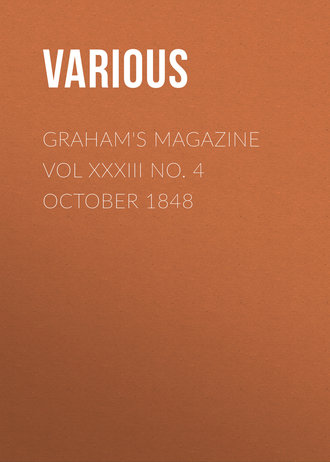Graham's Magazine Vol XXXIII No. 4 October 1848
 полная версия
полная версияGraham's Magazine Vol XXXIII No. 4 October 1848
Жанр: учебная и научная литературазарубежная образовательная литературалитература 19 веказнания и навыки
Язык: Английский
Год издания: 2017
Добавлена:
Настройки чтения
Размер шрифта
Высота строк
Поля









